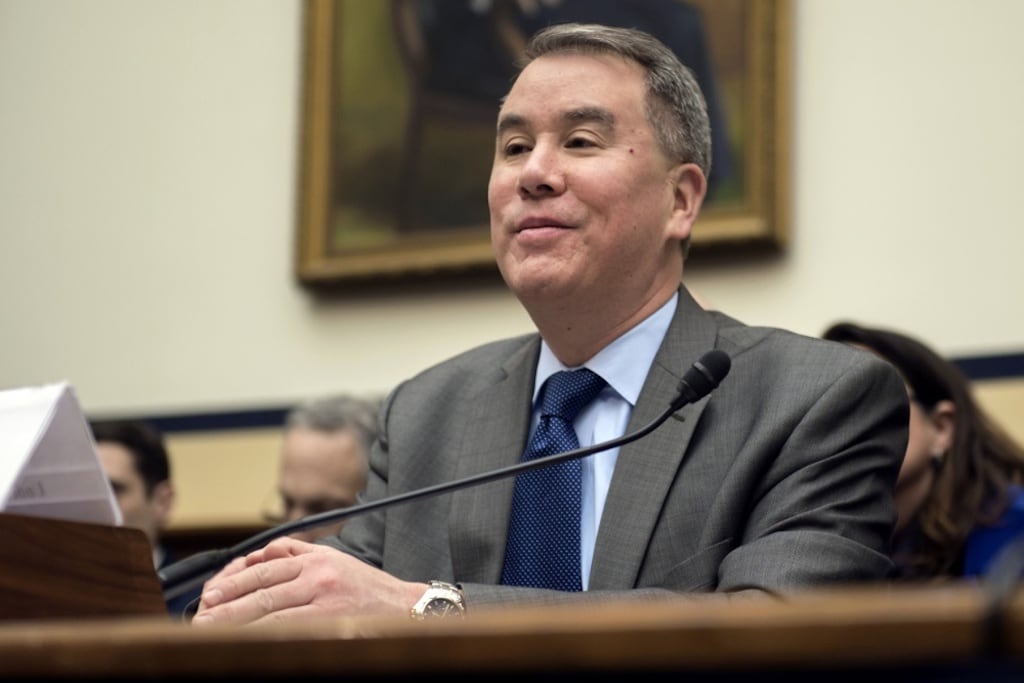WASHINGTON — With the Senate prepared to pass its draft of the annual defense authorization bill on Monday, military advocates are already looking ahead at what problem points will have to be worked out when the measure heads to conference committee later this month.
The House and Senate versions of the 1,000-plus page bills tackle a host of personnel issues, hardware procurement and Defense Department restructuring.
While congressional leaders have been optimistic that the conflicts in the two drafts won’t be as contentious as in years past, the differences still amount to a mammoth undertaking for staff charged with finding a reconciliation path between them.
Here are five of the most problematic differences, each of which could result in a significant obstacle in coming weeks to final adoption of the annual policy bill if negotiations go awry:
RELATED

Pentagon operations
The Senate bill features language designed to help the undersecretary of defense for policy regain some of the power and responsibilities it has ceded to the Joint Staff in recent years.
The House bill would require the Defense Department to eliminate two support agencies that are part of the so-called “Fourth Estate,” review and restructure several more, and cut certain personnel by 25 percent.
Both are aimed at DoD reform, but neither has a direct analogue in the other bill, and that means lawmakers will have to horse-trade over what survives.
Military end strength
Both the White House and House draft of the authorization bill call for a boost in the services’ end strength of 15,600 more service members. But the Senate plan calls for only about half of that (8,600 troops), and redirects the savings to other equipment and training accounts.
Supporters of the larger number have said that more troops are needed to keep up with demands on each of the armed forces.
But Senate officials have expressed concerns that roles and missions for those extra individuals haven’t been clearly defined, which could mean adding millions in personnel costs in years to come.
ZTE
Senate legislation to block the Trump administration from allowing the Chinese telecommunications conglomerate ZTE to resume business with American suppliers is expected to face opposition in the House.
Democrats fear House Republicans will look to strip the language, as the White House opposes the measure. House Armed Services Committee Chairman Mac Thornberry, R-Texas, has said he would oppose anything non-germane to the bill, if it threatens passage.
In April, Commerce Secretary Wilbur Ross banned ZTE from doing business in the United States for seven years after ZTE evaded sanctions on Iran and North Korea. But Ross announced earlier this month that ZTE would pay a fine of $1 billion and the U.S. would end a ban preventing the firm from buying American parts.
Personnel promotions
The Senate inserted an ambitious overhaul to officer promotion rules within its draft of the bill, including more flexible guidelines for individual services and doing away with strict timelines for advancement or forced separation.
But those provisions aren’t in the House draft at all. Lawmakers in that chamber have discussed the ideas in the past, but are awaiting Pentagon reports on the issue due later this year before taking any steps forward.
Senators have said they believe there has been enough research on the topic, and lawmakers need to act quickly to help the military better compete with private-sector recruiters. Finding a middle ground on the issue could prove tricky if individual senators push to keep the issue in the final draft.
Sage grouse
The sage grouse elicits chuckles in the halls of Capitol Hill, but it has delayed and threatened to derail bicameral NDAA negotiations for several years running. It’s at the center of serious battle between energy and ranching interests on one side and conservationists on the other.
An amendment added to the House bill, from Rep. Rob Bishop, R-Utah, would prohibit listing the greater sage-grouse and the lesser prairie chicken as endangered species for 10 years — if it survives conference. Bishop, a HASC member, also serves as chairman of the House Natural Resources Committee.
Senate Armed Services Committee Chair John McCain, R-Ariz., SASC Ranking Member Jack Reed, D-R.I., and HASC Ranking Member Adam Smith, D-Wash., have in the past successfully fought to keep the issue out of the bill, while Thornberry has been beholden to House GOP leaders’ preference it stay in. But the new wrinkle is that the SASCs No. 2 Republican Jim Inhofe, of Oklahoma, is covering for McCain, and he has told reporters he believes the issue does belong in the NDAA.
Joe Gould was the senior Pentagon reporter for Defense News, covering the intersection of national security policy, politics and the defense industry. He had previously served as Congress reporter.
Leo covers Congress, Veterans Affairs and the White House for Military Times. He has covered Washington, D.C. since 2004, focusing on military personnel and veterans policies. His work has earned numerous honors, including a 2009 Polk award, a 2010 National Headliner Award, the IAVA Leadership in Journalism award and the VFW News Media award.




